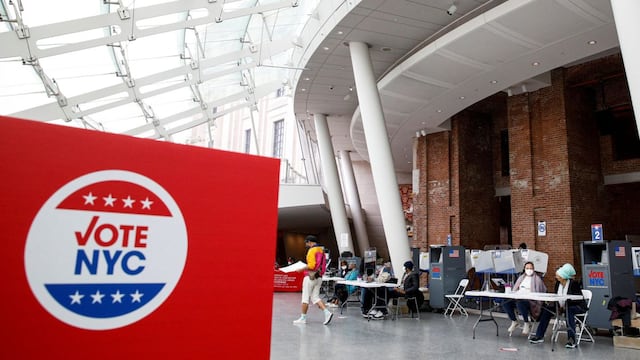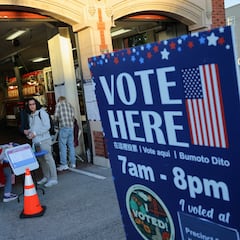With some important races in New York, California, Virginia...election states have had to find more vote center workers, but how much do they make?

How much money do polling station workers make on Election day 2025?

Excitement is high in New York and California as voters turn out to cast their ballot for mayor and Proposition 50. Other important elections are being held all over the country and poll workers play an important part, who ensure that voters can make their voices heard as efficiently and safely as possible, a particularly important task this year. Most workers are part-time, temporary employees hired by local election officials to work at polling places around Election Day, with each local body deciding exactly how much they get paid.
Are there fixed rates for polling center employers?
Although workers are all part of a national effort to get the votes collected and counted, the amount they get paid varies from state to state and even county to county. The exact role can also vary across the country, with some doubling up as vote counters once the last ballot has been received.
To reflect their different roles, poll workers are given different job titles, with poll workers also known as election clerks, election judges, inspectors, or commissioners in different parts of the US. Over 644,000 poll workers supported election officials in 2022, and a greater number are expected to be working on Tuesday.
How much do poll workers get paid in each state?
The method varies between states, with some setting a minimum hourly wage and others opting for daily compensation, but local authorities can, and often do, pay more to ensure they have enough staff.
Of the states to offer a daily stipend to poll workers, 13 of them have a minimum amount of less than $100 a day:
- Alabama, Arizona, Colorado, Georgia, Illinois, Kansas, Kentucky, Louisiana, Pennsylvania, Rhode Island, Tennessee, Virginia
Another seven areas (five states and two territories) guarantee poll workers a minimum daily stipend of at least $100 a day:
- Guam, Maryland, Mississippi, New York, Oklahoma, Virgin Islands
In eleven states poll workers are entitled to be paid at the state or federal minimum wage or higher, on an hourly basis:
- Arkansas, Idaho, Iowa, Minnesota, Montana, Nebraska, New Mexico, North Carolina, Ohio, Texas, Wyoming
Three states have designated a specific hourly or daily wage that differs from the minimum wage:
- Alaska, Delaware, Missouri, New Jersey, North Dakota
Related stories

NYC mayoral election: When do polls open and close?
And poll workers in the remaining states and one territory are not bound by a state-defined minimum wage or daily stipend, leaving the decision of payment entirely in the hands of local election officials:
- American Samoa, California, Connecticut, District of Columbia, Florida, Hawaii, Indiana, Maine, Massachusetts, Michigan, Nevada, New Hampshire, Oregon, South Carolina, South Dakota, Utah, Vermont, Washington, West Virginia, Wisconsin
Opportunities to volunteer have likely passed, but you can always check with your county election office on Monday to see if they require any additional assistance.

Complete your personal details to comment